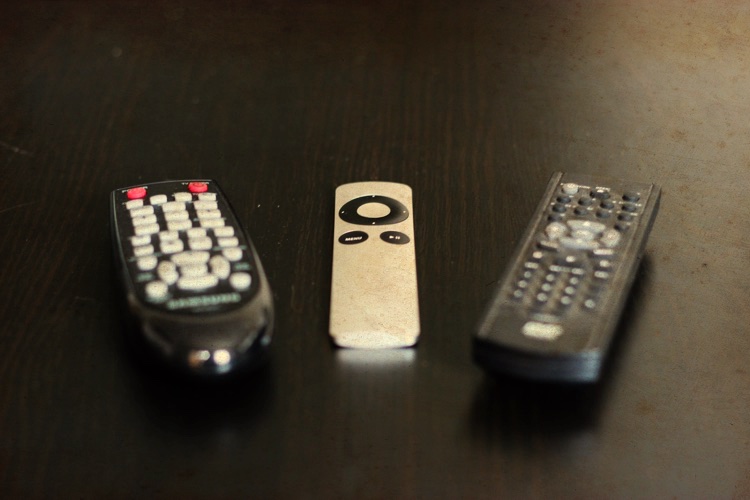How Information Overload Is Ruining Your Work Life

Key Takeaways
- Information overload, where the brain exceeds its processing capacity, can weaken concentration, lead to poor decision-making, and cause procrastination. It can be triggered by excessive intake of information from various sources like TV, internet, emails, etc.
- Dopamine, a neurotransmitter that boosts productivity, motivation, and focus, is released when the body takes in information. However, unmoderated information intake can lead to mental fatigue, lack of focus, and even depression.
- To combat information overload, it’s important to break bad habits that contribute to it. These include taking regular breaks, diversifying activities to avoid boredom, not starting the day with computer use, and controlling access to information triggers. Additionally, managing communication effectively, such as filtering emails and optimizing team communication, can help prevent attention fatigue.
Information overload is when your brain exceeds its processing capacity and leaves you feeling tired (like when your computer runs out of RAM and your computer crashes). It can also weaken your concentration, leaving you more susceptible to making bad decisions, and as a result, more likely to overload yourself from other sources of information as a means of procrastinating on important tasks. Yep, that’s right, I’m talking about television, the internet, checking emails, watching videos, and anything else that feeds you with information.

Let’s take a look at how information overload can ruin your work life and how you’re probably doing it without even realizing.
Why Your Body Craves Information
Dopamine is a neurotransmitter in the brain that affects your productivity, motivation and focus — some even call it the “motivation molecule” because it boosts your drive and concentration while helping you to resist negative impulses.
One of those impulses is the need to feed and I’m not only talking about your dietary intake; your body also craves information. Dopamine induces feelings of euphoria when you exercise, eat, drink, engage with your hobbies, and so on. Many of these things, including information, are addictive.
Basically, anything you do that makes you happy, makes you happy because it releases dopamine into your brain. Most of these things are bad for you (like unhealthy food, for instance) if your intake isn’t moderated. One of the hardest to moderate is your information intake because it only affects your mental wellbeing, leaving you feeling lethargic, unfocused, and sometimes even depressed if you overload yourself with it.
What Information Overload Does to You
Information overload can mean many things. It can mean that you’ve ingested too much of your to-do list at once and you’re feeling a little overwhelmed; it can mean that you’ve used up all of your cognitive capacity scrolling Facebook for the last two hours; it can mean that you’re not filtering your emails enough and you’ve wasted half of the day replying to them.
It could even mean that you’ve watched too many YouTube videos or Googled too many things — internet addiction is a real thing because it also induces dopamine in the body. We live in a world where the internet makes information so accessible to us that we can even become desensitized to dopamine over time, making it much harder for us to achieve optimum happiness.
Attention Fatigue
Information overload can be trigged in many ways, and the result of that trigger is something that we call attention fatigue.
Attention fatigue is when your brain literally shuts down as a result of having too much information to deal with, leaving you feeling unmotivated and tired. In many ways you can limit your information intake, but sometimes (when you simply have too much to do) you can also reset your brain by taking a break. Lets take a look at some ways that we can curb attention fatigue.

How to Break Bad Habits
Breaking bad habits is stressful at first because you’re addicted to the dopamine high that they give you, and you’re also repeating your bad habits because they’ve become a second-nature to you — you do them without even thinking. Here’s a list of things you can do right now to kick these habits:
1. Have regular breaks or optimize your work hours
After some trial-and-error I found that working 4 hours a day (every day) leaves me feeling incredibly energetic, as opposed to a typical 9-5 weekday setup that left me feeling drained.
2. Boost your dopamine levels in a variety of ways
Don’t commit all of your time to one activity; this applies to hobbies and your day-to-day work tasks. Too much of anything will eventually cause boredom and attention fatigue.
3. Don’t start the day with your computer — ever
Don’t waste all of your juice before you’ve even started the day. This is a very common mistake, and the worst one to make!
4. Lock away your triggers (television, internet)
While I’m not a huge fan of television myself, there are TV features that can block access during certain times of the day, and there are a number of apps that can do the same thing for internet access (or specific websites if needed).

Further reading: How to Master the Habit of Forming Good Habits
How to Curb Unnecessary Communication
Reaching inbox zero only to have another bundle of emails flow right in is something I’m sure everyone can relate to. It’s a never-ending story, and even if you manage to finish the book there’s a sequel called “Communication & Collaboration: How to Talk About Your Project As a Team Until It’s Time to Go Home”.
Email Overload
Preventing attention fatigue boils down to prioritizing what you actually do at work. If you find that half the emails you receive could have been avoided, then maybe you need to have kind of system that filters unsolicited requests, spam, newsletters and notifications from your social media channels. I filter all of those into separate mailboxes so that I can leave unimportant emails until the end of the day, otherwise I grow very tired and bored before I’ve even begun my work day.
Conversation Overload
A common mistake when setting up teams is throwing a communication app into the workflow and assuming that it will automatically improve productivity. If you allow teams to talk with one another, they will talk until the cows come home, sometimes even as a means of avoiding doing any actual work.
Let’s take Slack for example. You can integrate your other apps (management apps, to-do apps, customer service apps, collaboration apps, whiteboard apps) into Slack to make the conversation more actionable and contextual.
So rather than saying “Yeah, so when we end this conversation I’ll do this and that,” you can instead do it from within Slack, in the moment. Many other communication apps are extensible like this, enabling you to shift back to your work very quickly.
Conclusion
Feeling the effects of attention fatigue is quite awful, especially when the focus of your attention doesn’t exactly bring you closer to achieving your goals, leaving you feeling “done” before you’ve even started. But now that you know how information overload works, you can prioritize (or eliminate) activities that would usually take a huge bite out of your day.
It’s actually quite fascinating how time flies when you’re checking your Facebook or replying to emails, and how addictive that can be when you’re constantly searching for something to stimulate your brain. How do you allocate your time?
Frequently Asked Questions (FAQs) on Information Overload and Its Impact on Work-Life Balance
What are the main causes of information overload in the workplace?
The primary causes of information overload in the workplace include the constant influx of emails, messages, and notifications, the pressure to stay updated with the latest news and trends, and the need to process and make sense of vast amounts of data. The advent of technology and the digital age has exacerbated this issue, making it increasingly difficult for individuals to disconnect and focus on their tasks.
How does information overload affect productivity?
Information overload can significantly hamper productivity. It can lead to decision paralysis, where the sheer volume of information makes it difficult to make decisions. It can also cause stress and burnout, leading to decreased motivation and performance. Furthermore, it can lead to a decrease in creativity and innovation, as individuals may not have the mental space to think outside the box.
What are some strategies to manage information overload?
Some effective strategies to manage information overload include setting boundaries for digital communication, prioritizing tasks, taking regular breaks, practicing mindfulness, and using tools and apps that help in organizing and filtering information. It’s also important to cultivate the ability to focus on one task at a time and avoid multitasking.
How does information overload impact mental health?
Information overload can have a significant impact on mental health. It can lead to stress, anxiety, and burnout. It can also cause feelings of overwhelm, frustration, and helplessness. In severe cases, it can even lead to depression. Therefore, it’s crucial to take steps to manage information overload and seek professional help if needed.
Can information overload lead to directed attention fatigue?
Yes, information overload can lead to directed attention fatigue. This is a state where the brain’s attention resources are depleted due to constant and intense focus on information processing. This can lead to decreased productivity, increased errors, and difficulty in focusing and concentrating.
What is the role of technology in information overload?
Technology plays a significant role in information overload. While it has made information more accessible, it has also led to an overwhelming amount of data that needs to be processed. The constant notifications and updates from various digital platforms can also contribute to information overload.
How can organizations help employees manage information overload?
Organizations can help employees manage information overload by providing training on time management and digital literacy, implementing policies that reduce unnecessary communication, and promoting a culture of mindfulness and focus. They can also provide tools and resources that help in organizing and filtering information.
Can information overload affect decision-making?
Yes, information overload can affect decision-making. The excess of information can lead to decision paralysis, where individuals find it difficult to make decisions due to the overwhelming amount of data. It can also lead to poor decision-making, as individuals may not have the mental space to thoroughly analyze the information.
How can I cope with information overload in my personal life?
Coping with information overload in your personal life involves setting boundaries for digital communication, prioritizing tasks, taking regular breaks, and practicing mindfulness. It’s also important to disconnect from digital devices from time to time and engage in activities that help you relax and recharge.
What are the long-term effects of information overload?
The long-term effects of information overload can include chronic stress, burnout, decreased productivity, and mental health issues such as anxiety and depression. It can also lead to physical health issues such as insomnia, headaches, and heart disease. Therefore, it’s crucial to take steps to manage information overload and maintain a healthy work-life balance.
Previously, design blog editor at Toptal and SitePoint. Now Daniel advocates for better UX design alongside industry leaders such as Adobe, InVision, Marvel, Wix, Net Magazine, LogRocket, CSS-Tricks, and more.

